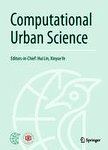版权所有:内蒙古大学图书馆 技术提供:维普资讯• 智图
内蒙古自治区呼和浩特市赛罕区大学西街235号 邮编: 010021

作者机构:Beijing Union Univ Smart City Coll 97 North Fourth Ring Rd Beijing 100101 Peoples R China
出 版 物:《COMPUTATIONAL URBAN SCIENCE》 (Comput. Urban Sci.)
年 卷 期:2025年第5卷第1期
页 面:1-13页
核心收录:
基 金:National Natural Science Foundation of China
主 题:Urban computing Electric vehicle Battery swapping station Reinforcement learning Hybrid optimization Target balance
摘 要:Smart transportation is an important application scenario in the field of urban computing. As the popularity of electric vehicles increases, the demand for fast charging is growing rapidly. In response to this, battery swapping stations are being proposed as a solution, but their operational efficiency is challenged by factors such as battery life, vehicle queues, and grid load management. In this paper, a mixed intelligent optimization strategy combining the proximal policy optimization (PPO) algorithm from reinforcement learning and the goat swarm optimization (GSO) algorithm is proposed. The GSO-PPO algorithm is constructed, where PPO algorithm learns the optimal scheduling strategy for the battery swapping station in a dynamic environment, and the GSO algorithm optimizes the hyperparameters of PPO and adjusts the weight of the reward function to achieve the multi-objective optimization of minimizing battery life, shortening vehicle waiting time, and efficiently managing grid load. The experimental results show that compared with random strategies and traditional PPO algorithms, GSO-PPO reduces vehicle waiting time and improves service efficiency, making the overall operation of the battery swapping station more stable. The study demonstrates the potential of combining reinforcement learning and swarm intelligence algorithms in smart energy infrastructure and solving multi-objective optimization problems.